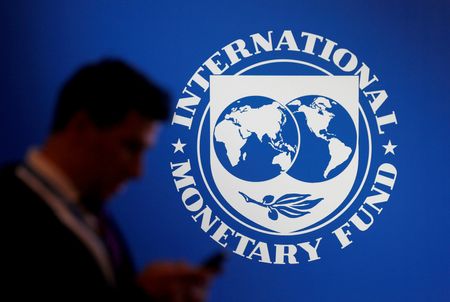PRAGUE (Reuters) – Czech interest rates should rise further “in the short term” to tame inflation and avoid more painful hikes later, the International Monetary Fund has said in the conclusions of its 2022 report on the country.
The Czech National Bank (CNB) has maintained interest rate stability for half a year under a revamped board led by Governor Ales Michl, seeking to anchor the economy as high inflation saps consumer and company activity.
The stable policy stance comes after a combined 675 basis points in hikes between June 2021 and June 2022, bringing the key rate to a more than two-decade high of 7.00%.
“Staff recommends further hikes to the policy rate in the short term to above the current level of the policy rate,” the IMF wrote in its conclusions published in a Jan. 20 statement, which confirmed preliminary recommendations in November.
“While a careful balance between high inflation and weakening economic activity needs to be taken, priority should be given to decisively quell inflation.”
“If inflation expectations become untethered, this would require a significantly higher tightening to restore price stability and thus entail more costly economic adjustments,” it added.
The bank has kept the option of a rate hike on the table as it monitors the risk of a pick-up in wages or signs of inflation expectations becoming unanchored.
CNB Vice-Governor Eva Zamrazilova reiterated in an interview with daily Lidove Noviny on Tuesday that inflation expectations were a risk. She said, though, she saw signs that wage growth would between 5-10% at companies, which would be acceptable.
“If it were more, it would support a certain persistence of inflation this year as well. And it would require further tightening of interest rates,” she told the newspaper.
(Reporting by Jason Hovet; Editing by Christina Fincher)

